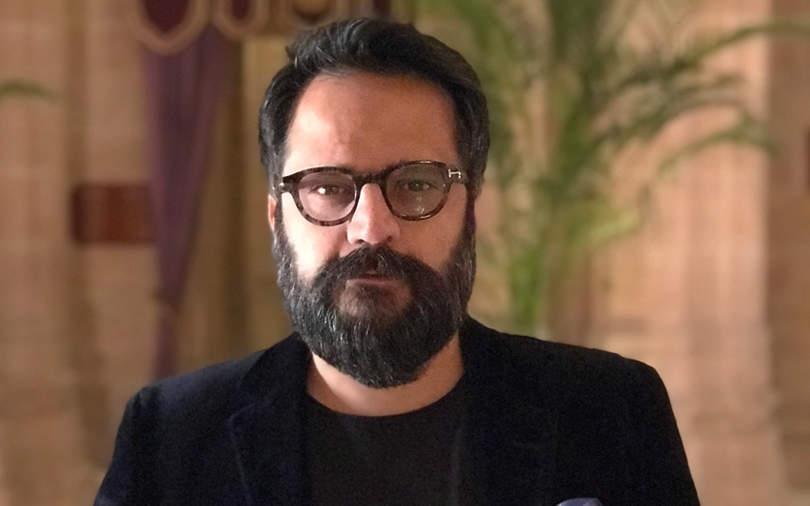
This entrepreneur wants to make loyalty rewards fungible like cash with his new B2C venture


After close to a decade of running a debt-free and profitable technology-based B2B business, Amit Chawla shouldn’t be nervous about starting a new venture. But he is both nervous and excited. His latest project, a yet to be launched super app for rewards called Epic.one, is barely seven months old and requires the Bengaluru-born entrepreneur to woo retail consumers directly.
As he goes about fashioning his B2C rewards app, Chawla, who works out of a nondescript building in the middle of a central Bengaluru high street, finds himself spending a lot of time these days speaking to potential customers. “The business segment has not changed, but the model has. This time around, I’m wooing customers directly,” he says, in a conversation with TechCircle.
Epic will enable consumers to reap rewards across multiple brands, which can be redeemed for any purpose preferred by a customer. “The idea is to make customer loyalty for brands as rewarding as an instant cashback,” he says.

There is a large addressable market for sure. For instance, according to industry estimates, $460 billion worth of loyalty points are lying unused just in the US. Chawla's biggest problem, however, is customer addiction to cash, or rather cashbacks that have come to dominate the retail incentive landscape.
"Most customers don't understand the value or the value is too small to encourage repeat purchases for the same brand. The loyalty programme value has stagnated, the digital ecosystem has transformed it. What a customer sees is what he thinks he gets and hence cashback has come to dominate the landscape. In the digital onslaught, the retailers are also indulging in unsustainable cashbacks with no value-basis relationship with customers," he says.
Since cash is fungible, Chawla reckons that loyalty or rewards points should be fungible as well to make them attractive for consumers. For instance, reward points earned from booking a flight ticket should be redeemable for a monthly broadband bill payment. Similarly, apparel shopping rewards points should be redeemable at a coffee shop.

“The rewards and loyalty industry is built around what enterprises can get from consumers and not the other way around. That’s a recipe for failure,” he says.
Epic customers will continue to let brands generate rewards points for using the respective brands on the platform. "These are not Epic points. We are a technology enabler," Chawla clarifies. The app enables the customers to use one brand's points for a bill payment or something else, which was not the case earlier. The platform acts as a marketplace for redeeming reward points.
Chawla is bootstrapping Epic with $1 million and has roped in seasoned venture capitalist Shalini Prakash as co-founder. He has also decided to focus on Epic full time and handing over the day-to-day running of Reward360, his B2B rewards solutions business, to a professional chief executive. Reward360, he says, has a turnover of Rs 350 crore and generates decent profits.

Chawla is also digging deep within his technology, experience and network of partners from the last decade to kickstart the venture. He has already signed up several brands including Amazon, Flipkart, Emirates, Landmark Group, Cleartrip and Booking among others for Epic
His B2B business has been in the loyalty technology space for close to a decade and has customers like HDFC bank, American Express, the global account of Standard Chartered Bank and Payback. It runs and manages the white label platforms for large enterprises end-to-end loyalty programme from the offer planning to the delivery of the reward to customers in the country as well as in West Asia and South-East Asia.
Banks have an appetite because the customer base is neutral across the board and can follow customers across categories like e-commerce, fashion, food and dining, auto or household purchases. Currently, Gurugram-based Payback is the aggregator of loyalty programmes and it works with ICICI Bank, Future Group and HPCL among others.

There can be two forms of loyalty programmes: proprietary ones that are run by the brand itself and coalition loyalty, mostly using a payment processing technology, where the margins are lower. Chawla says he never wanted to be in a high-volume, low-margin business. "We were aware of the growth the business had seen but took a conscious decision not to enter the space. We were not sure whether that can generate profits or even be successful. We wanted to make profits along the way," says Chawla.
Chawla believes his deep understanding of the loyalty and rewards business will help him sell the Epic platform to more potential partners. According to him, there are only a few large enterprises that have access to run such a loyalty programme but most of them don't have the technology and marketing to do so.
He expects Epic to be a multi-million dollar business within a couple of years. This time he also plans to bring in external capital to enable the business to grow at a faster clip than Reward360.

Epic is expected to be launched across South East Asia and West Asia within the next couple of years. "There is massive potential with high mobile penetration and these markets are ready for a product like this," he said, adding that enterprises and customers in emerging economies are ready to explore such a platform.
"A million customers within a year and we are looking to be profitable from day one if run right," he signs off.
